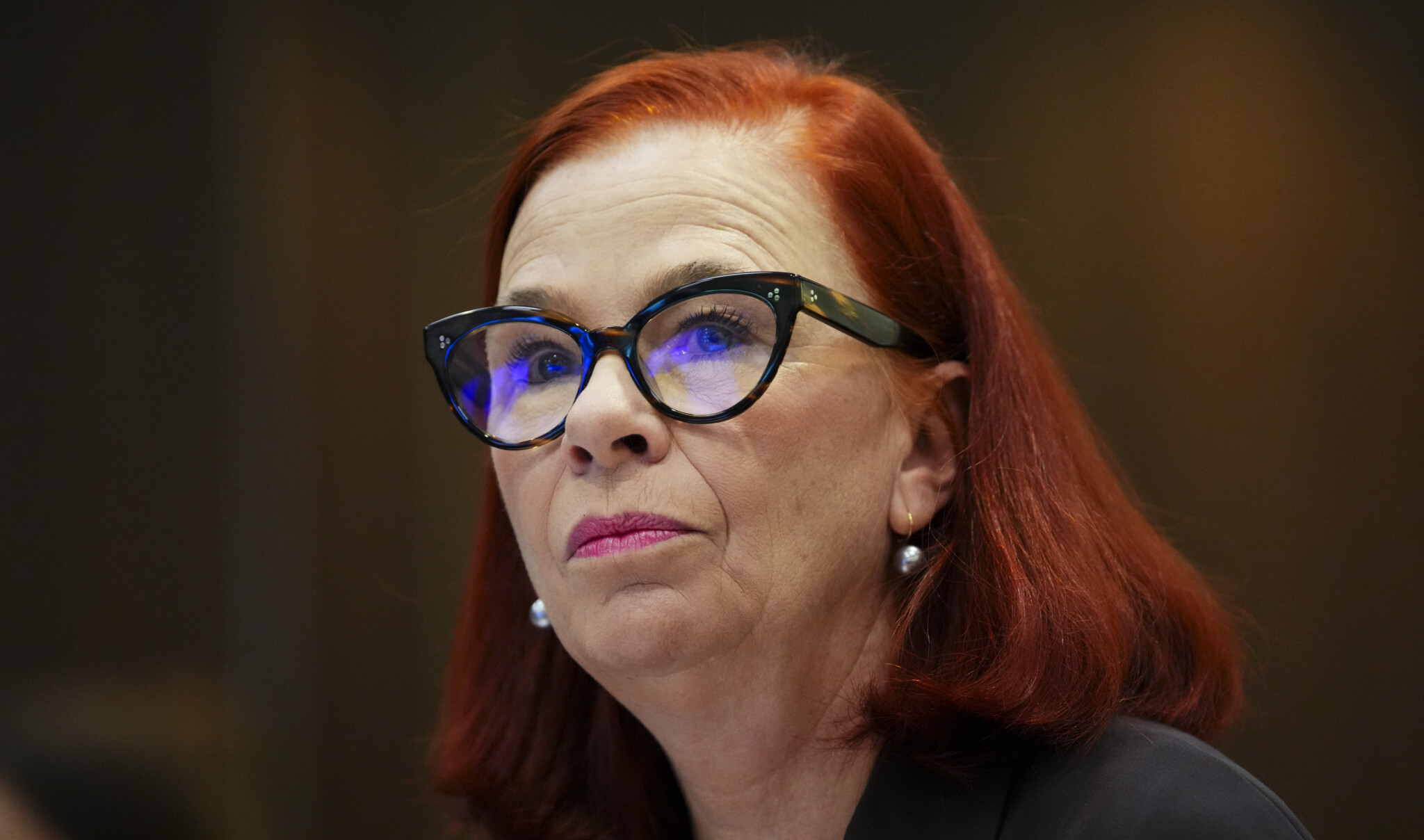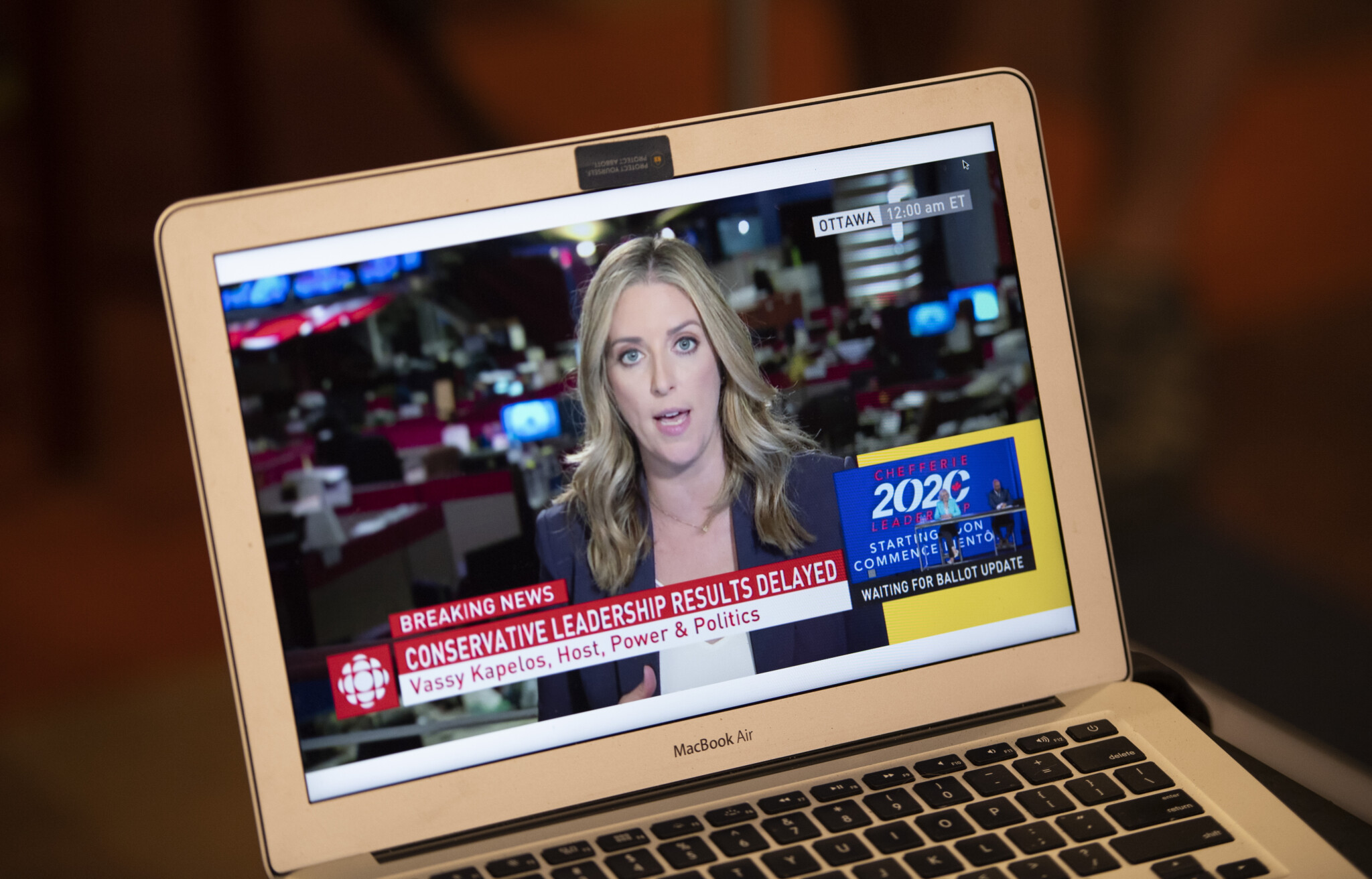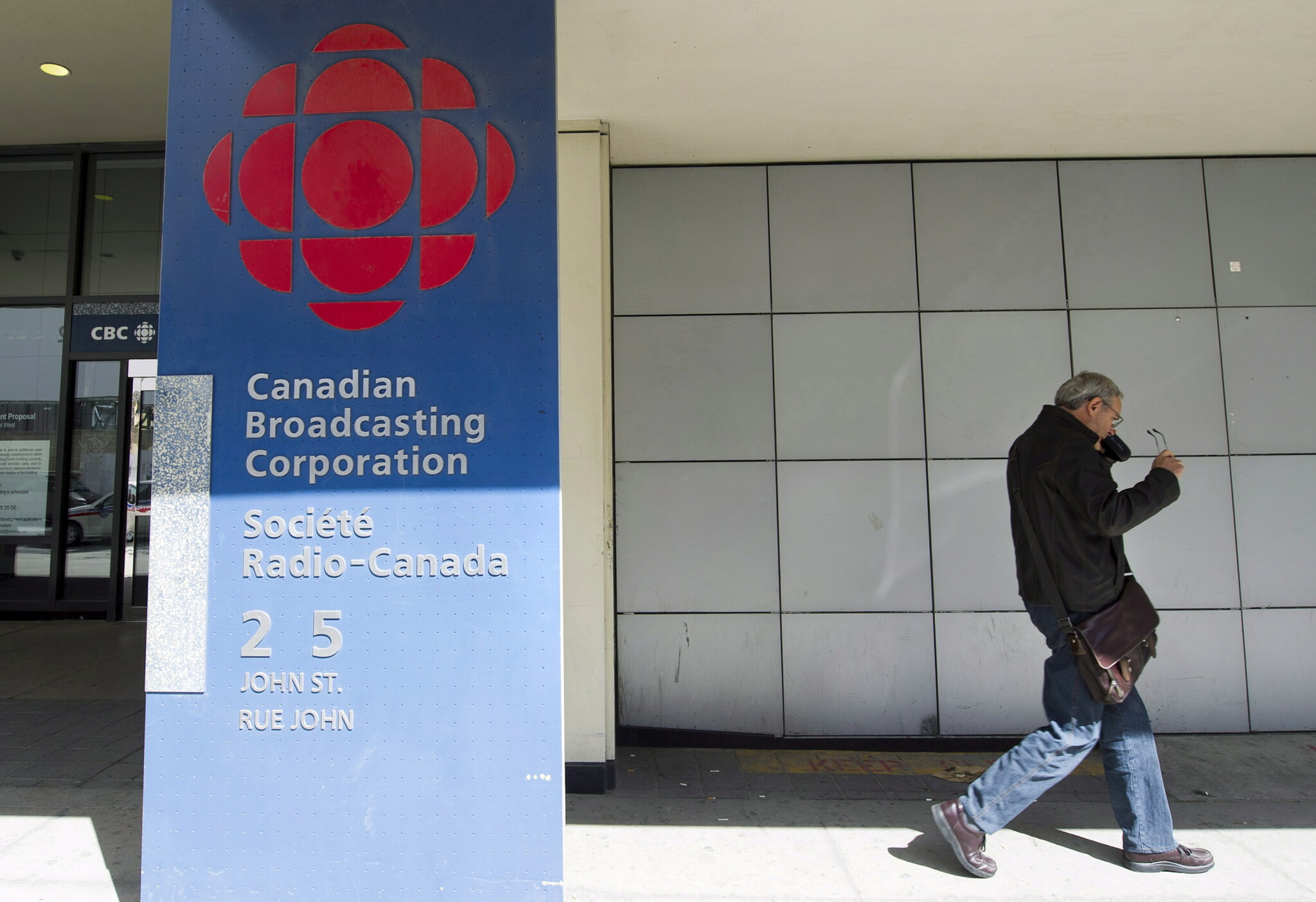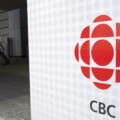A few days ago, for the first time in my life, the CBC opened its airwaves to its critics, and I got to complain.
It happened in the unlikeliest of places, on a CBC radio show called Commotion, which the national public broadcaster describes as a place for “vibrant conversations” about “all things pop culture.”
The panel conversation, titled “Three Critics on the Future of the CBC,” was timely. Not only is the Trudeau government’s announcement about a new CBC mandate expected any day now, but an advisory panel is busy furiously studying how to modernize the broadcaster, and a new CEO has just been named.
More importantly, word on the Ottawa streets is that Conservative leader, and likely next prime minister, Pierre Poilievre, has finished crafting his plan for the CBC. This week, I was told by a well-placed Conservative that Poilievre intends to eliminate all funding for the English arm of the broadcaster. And that he’ll do it in his first 100 days in office.
“I can’t wait to defund the CBC and sell off the headquarters for housing,” Poilievre posted on X this summer. With these remarks, he addressed the desires of thousands of conservatives who don’t merely feel the broadcaster isn’t worth $1.4 billion or isn’t representing them, but that it actively antagonizes them with its coverage. For this, they believe, the CBC must be punished.
So, as the CBC enters yet another year of not re-positioning itself in a way that would address the concerns of these and other Canadians, I believe it is sleepwalking into a buzzsaw.
While they’ve opened their doors to criticism, it’s probably too late. You can’t bring canaries into the coal mine when the miners are already dead.
It’s a damn shame because I think a version of it deserves to be saved.
Best-laid national broadcaster plans
I was once a CBC employee. For about six months in 2016-2017, I worked as a producer on the flagship business show On the Money in Toronto. While it was clear the building leaned Left, with a colleague once asking me why I was reading the late great National Post journalist Christie Blatchford because she was “batshit,” the staff I worked with in the business newsroom were kind and professional. Many who worked there and still work there are trying to serve the public by keeping the country informed.
When the CBC fulfills its mandate to “inform, enlighten, and entertain” and “contribute to the development of a shared national consciousness and identity” it can be a connective tissue that binds together diverse communities scattered across the second-biggest country on earth.
But over the past decade or so, the national broadcaster has failed to mirror large swaths of the country back at itself. By speaking to an increasingly smaller segment of the population—the progressive, educated, urban elite—it is overlooking religious, right-of-centre, rural, working class, younger male, and less-educated Canadians, to name a few.
“The CBC is not contributing to consensus reality. It is an ideologically captured institution that is listened to by an increasingly fewer number of people exactly because it does not reflect Canadian reality,” said Canadian writer Stephen Marche, on the podcast Canadaland this year.
“I hear Stephen’s complaint from a substantial number of the CBC employees I know,” admitted veteran political journalist Paul Wells.
And so, I, the Free Press writer Rupa Subramanya, and columnist (and former Conservative nomination candidate) Sabrina Maddeaux found ourselves tag-teaming a sort of CBC roast, on CBC Radio, to express these concerns.
Our criticism panel was strange for a variety of reasons. One—the person moderating it, Elamin Abdelmahmoud, had a stake in the broadcaster’s future. After all, he takes home a CBC paycheque, and frankly, his pop culture show would probably be first on Poilievre’s chopping block. Elamin is also a close friend of mine, who I complain to about the CBC on a daily basis.
The tone
What I tried to express to Elamin on air is that he and his CBC colleagues often have a tone problem. It’s been described to me as a “preachy” “patronizing” “we know best” “talking down to you” way of speaking on air.
“The tone” was on full display during the broadcaster’s recent interview with John Rustad, in which a CBC radio host accused the BC Conservative leader of efforts to “scare people” because his recent election campaign (in which his party received 43.3 percent of the popular vote) focused on drugs, crime, and gender identity in schools. He said Rustad, “saw the world…in a way that’s a dangerous awful place.”
This tone gives listeners the sense that to not agree with the progressive worldview doesn’t just mean you are wrong, but that you are a bad person.
The coverage
I also told Elamin the CBC has a coverage problem. Social justice issues, of course, deserve to be a slice of the stories the broadcaster covers. But as a daily CBC listener, they currently make up a massive piece of their coverage pie. I encourage readers to randomly turn on CBC at any point in the day and see how long it takes before you hear a story about racial discrimination, gender equity, or Indigenous justice.
I also often find myself anxiously waiting at the end of news reports for another side of the story I know exists—whether it’s about MAID, opioid drug policy, or immigration levels. Instead, the report often just fades to black.
In 2020, when the Newfoundland government eliminated its Discovery Day, which for nearly 60 years marked Italian explorer John Cabot’s European discovery of the province, it was interesting that CBC reporters could not find a single person in the province to interview who opposed the change.
This year, when the landmark and nuanced Cass Report on gender identity services for young people was released, the CBC devoted one article to it, which failed to feature a single proponent of the study. Instead, it quoted three doctors who opposed it. This came after they quoted critics of the Saskatchewan government’s pronoun policy five times more than supporters, even though critics make up just 14 percent of the population.
Some views just don’t seem worthy of being recorded by the CBC, even if they are views held by sizable portions of the Canadian public.
Of course, Poilievre is exaggerating when he calls the place a “propaganda arm” of the Liberal government. But there is a clear disconnect here.
Nearly 45 percent of Canadians now say they will vote Conservative in the next election. But when these Canadians turn on the broadcaster they pay for and can’t hear their mainstream views expressed, it’s enough for them to switch off. It’s enough for some to want revenge.

CBC President and CEO Catherine Tait appears as a witness at a House of Commons Standing Committee in Ottawa, Oct. 21, 2024. Sean Kilpatrick/The Canadian Press.
The Tait Modern
The CBC’s precarious position has been made even worse by the fact that their current CEO Catherine Tait has squandered six years of runway that could have been used to address these mistakes—giving these Canadians a real sense that their public broadcaster is listening and self-reflective, accepting some blame, and making changes. To do so would have required a full-scale top-down remaking of the way it approaches journalism, similar to the realignment The New York Times is attempting, having realized it also abandoned its right-leaning readers.
Instead, Tait adopted the same “holier than thou” defiant tone of our increasingly loathed Liberal prime minister. She tripled down on prioritizing DEI hiring (86.8 percent of new recruits are “racialized, Indigenous, or persons with disabilities”) over bringing on people who think differently. She is unable to name a single CBC conservative commentator. When challenged, she told critics they were mistaken because the CBC is actually a “beacon of truth in a sea of fake news.”
Sticking with Tait’s nautical analogies, instead of battening down the hatches of a CBC ship facing major waves by making a real course correction, her insistence on millions of dollars in CBC executive bonuses during hundreds of job cuts gave the impression that she and other bosses are not just making off with the booty, but the life rafts as well.
CBC journalists I speak to despise her for this. My Conservative source says she has directly contributed to the CBC’s forthcoming demise. Others joke that she is a right-wing Manchurian candidate whose mission is to take down the broadcaster from the inside.
The uncertain future
Thankfully, the CBC is making some moves. They are investing in hiring more local reporters and are having more conversations like the one we had on air. But it is likely too late.
No less than six CBCers, including a few of its most well-known hosts, have privately messaged me to tell me the criticisms I made above were valid. It’s frustrating to receive this feedback because it means that even big names inside the building are aware the organization is failing many Canadians, but feel they are unable to seriously change things from within.
For a public broadcaster to survive today it must be considered a “must-have” by the public it serves. But, increasingly, the CBC is being seen as a “nice to have.” I told Elamin that the death of the CBC will not be at the hands of the cheering Conservative crowds at Poilievre’s rallies, but because of the indifference from the Canadian public when a majority Conservative government strikes them from the budget after the next election.

A live stream of CBC News Network, in Ottawa, on Monday, Aug. 24, 2020. Justin Tang/The Canadian Press.
It will be a tragedy. It is easy to dismantle near 100-year-old institutions. It is more difficult, if not impossible, to build them today.
The CBC emerged as a conservative idea. It was under R.B. Bennett, a Conservative prime minister, that the Canadian Radio Broadcasting Commission was created in 1932. Its mission was to ensure more Canadian content for Canadians. Bennett feared our airwaves were being flooded by American programming.
During his convention speech last year, Poilevre announced, “This business of deleting our past must end. And this is a matter on which English Canada must start to learn from Quebec. Quebeckers—and I’m saying this deliberately in English—do not apologize for their culture, their language, and their history. They celebrate it at all, and all Canadians should do the same.”
I still believe this could be achieved with a deeply reformed CBC.
Filling a gaping hole
Today, CBC/Radio-Canada employs approximately one in 10 Canadian journalists. If a Prime Minister Poilievre scraps its English public arm while simultaneously eliminating the Trudeau government’s countless multi-million dollar private journalism subsidy, salary, and tax credit programs, (which hundreds of outlets are now hooked on), Canadian media would immediately experience a near extinction-level event. A gaping news hole would suddenly appear.
Of course, new innovative media would sprout up from that hole. Some are already sprouting. But this would take time, as the journalism business model remains broken.
Given these consequences, it is the responsibility of conservatives who will soon have the power to remake Canada’s media landscape to operate with precision and care, rather than revenge.
We still need reporters to cover rural and remote parts of the country where it’s next to impossible to turn a media profit. We still need expensive investigative reporting to uncover political scandals. We still need some form of shared media that spans the country and attempts to be objective.
Conservatives (who will now say I’m the one lecturing them) should ensure that the mainstream media they love to hate, which has done such a poor job portraying them, is not simply replaced by a news desert or an American news oasis.
They should also hope those outlets aren’t replaced by something that is ideologically delicious but lacks any real intelligence, expertise, depth, accuracy, or seriousness.
As we are learning from the U.S., while “owning the libs” may be extremely gratifying, it cannot be the driving force behind how you build and unite a G7 nation.
This week, American intellectual Sam Harris made a pertinent point while describing how Americans should respond to the fact that mainstream media also failed conservatives in his country.
“I know what it’s like to read an article in The New York Times and to spot obvious lies,” he wrote.
“But the alternative to the failure of journalism simply isn’t the firehose of lies, half-truths, and conspiracy theories that you find on X. Nor is it the calculated and ever-present distortion you find on right-wing news channels, which never had any journalistic standards to violate in the first place.”
He goes on, “There’s simply no alternative to healthy institutions that maintain their credibility, even when they make mistakes, by reliably correcting their errors. And when they fall short of this standard, they can be pressured to do better, because they have intellectual and moral scruples.”
“The Joe Rogan podcast is not a substitute for the Wall Street Journal.”
The new media that sprouts up should be committed to the best principles and standards the old media established and then failed to live up to. But, the new media must aim to do it better. And we should all hope some of the old traditional media survives too. Because without this mix, we risk becoming even more fragmented and divided. And no good can come of that.











